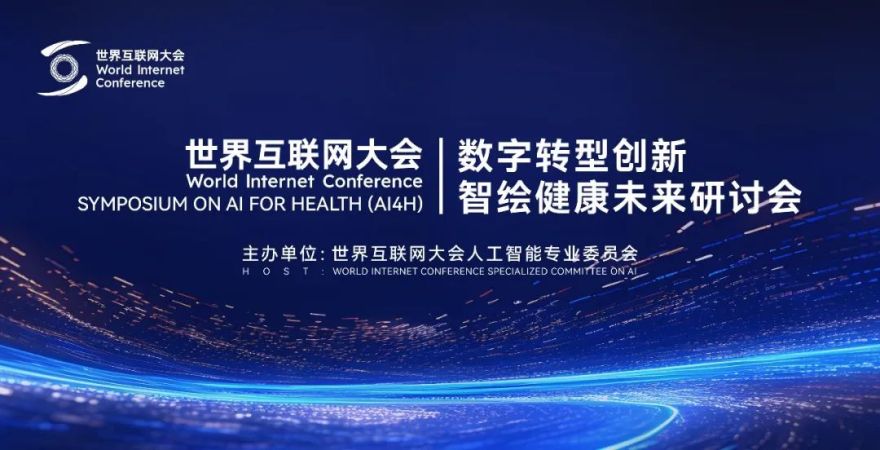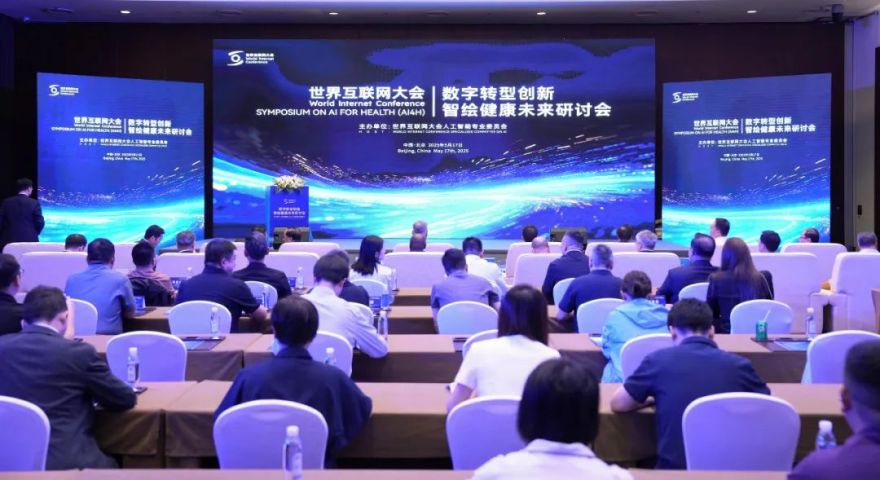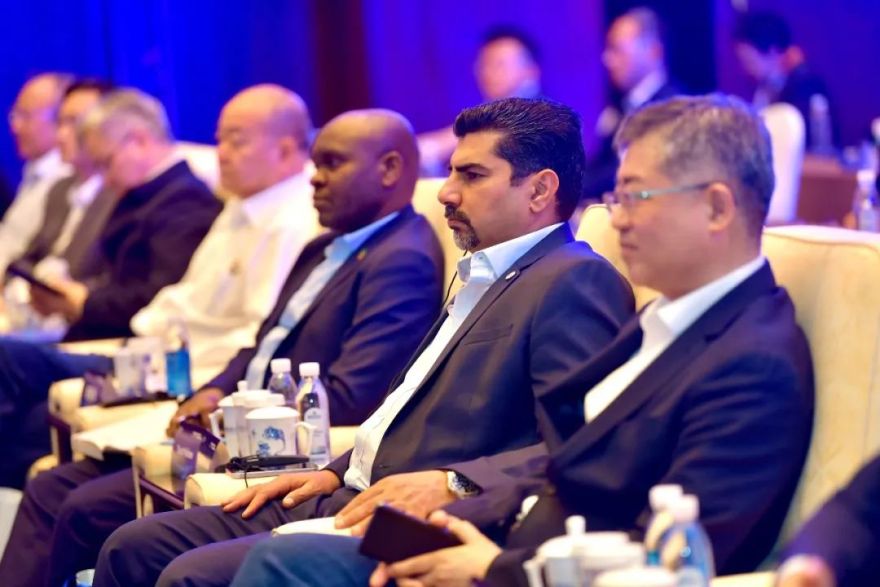
A symposium on "AI for Health," hosted by the Specialized Committee on Artificial Intelligence (SC on AI) of the World Internet Conference (WIC), took place at the National Convention Center in Beijing on May 17.
The event brought together more than 150 participants, including members of the WIC SC on AI and representatives from governmental departments, international organizations, embassies and consulates in China, leading domestic medical institutions, research institutes, and smart healthcare enterprises, to discuss digital transformation and AI-enabled innovation in the healthcare sector.

Chaired by Liang Hao, executive deputy secretary-general of the WIC, the symposium featured opening addresses by Wang Jingtao, deputy minister of the Cyberspace Administration of China and Ren Xianliang, secretary-general of the WIC.
The attendees agreed that digital technologies are reshaping the healthcare ecosystem with unprecedented depth and breadth, and digital transformation and AI are key drivers for high-quality healthcare development.
To promote AI-empowered healthcare, integrated innovation is necessary to stimulate cross-sector development, the participants said. Relevant institutions should actively embrace new technologies like AI, adapt to the needs of the industry, and explore joint talent cultivation and discipline-building to deepen integration among industry, academia, and research, they noted.
Security is the top priority and a risk prevention and control system should be built under a people-centered philosophy, to ensure that AI development is in line with laws, medical ethics, and public interests, according to the participants.

International cooperation needs to be enhanced for collaborative and inclusive development of AI-driven healthcare, they said. The role of the WIC organization should be leveraged to strengthen exchanges in smart healthcare and break data barriers, in order to help create inclusive public goods for the world, they added.
Martin Taylor, WHO representative to China, addressed the event via video link. Keynote speakers at the event included Li Haizhou, a fellow of Singapore Academy of Engineering and executive dean of the School of Data Science at the Chinese University of Hong Kong, Shenzhen; Yang Dungan, secretary of the Discipline Inspection Commission of Peking Union Medical College Hospital; and Zhu Lifeng, deputy director of the Shanghai Digital Medicine Innovation Center, Ruijin Hospital, affiliated with the Shanghai Jiao Tong University School of Medicine.
Several other speakers also shared their views on AI for health, including Hou Yan, president of the Chinese Medical Equipment Association; Huang Jin, executive vice president of West China Hospital of Sichuan University; Min Dong, deputy director of the Cloud Computing and Big Data Research Institute, China Academy of Information and Communications Technology; Chen Qixiao, vice president of Greater China Region, Siemens Healthineers Ltd.; and Qian Wei, general manager of Oncology, Roche Pharmaceuticals China. Cai Xiujun, president of Sir Run Run Shaw Hospital, affiliated with the Zhejiang University School of Medicine, also delivered a video speech at the symposium.
(Source: World Internet Conference)
Copyright ©1997- by CRI Online All rights reserved